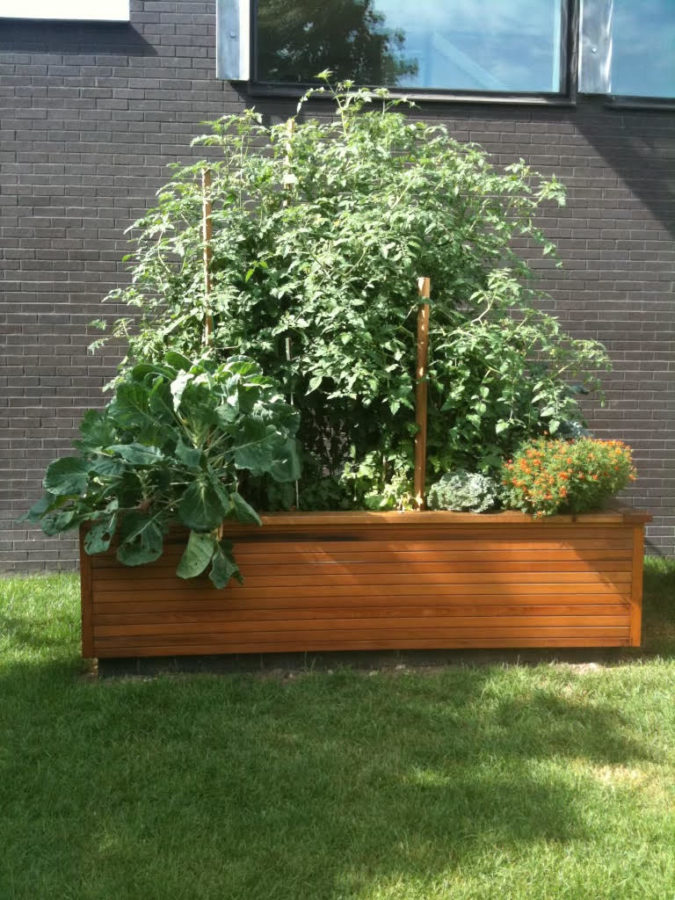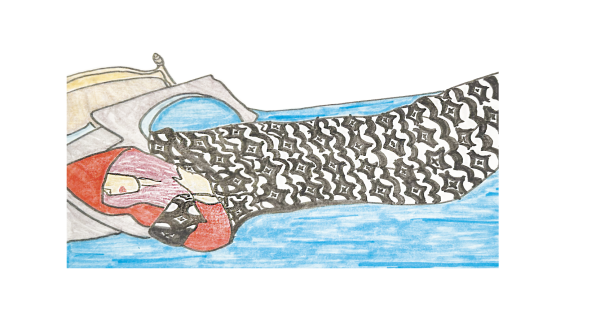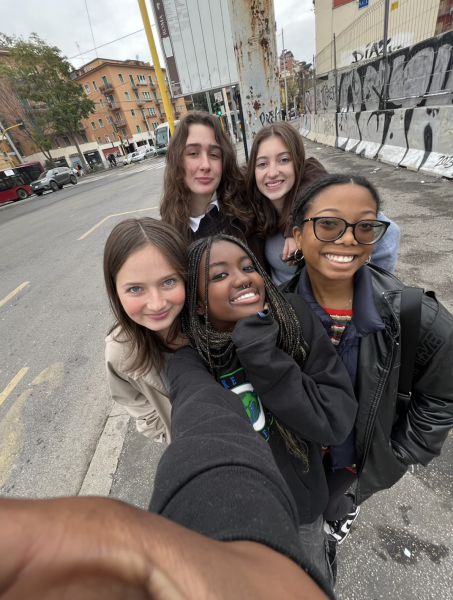Food Gardens Provide Freshness
Benefits outweight the work, manual labor
Schifman’s tomatoes are seen thriving in abundance with their leafy green stems. It is important for tomatoes to be grown in the warm sun.
“Everything tastes better off of the vine or the stem,” explains Ellie Schifman ’24, which is why she, along with other community members, recommends food gardens. Schifman continues, “It’s not only better to eat food from the garden, but [over time] it becomes cheaper too.”
Additionally, Schifman notes the differences in taste between store-bought and homegrown produce: “A lot of people say they don’t like tomatoes, but I feel like they just have to try one fresh.” Schifman and her family tend to grow various fruits such as strawberries and raspberries, vegetables such as kale and cucumbers, in addition to a plethora of herbs. As for her inspiration, “My mom…is in charge of the [garden] and she cares a lot about organic food and growing our own food.”
Ceramics teacher Jim Spector also enjoys growing homegrown produce. In addition to the crops mentioned by Schifman, Spector tends “cantaloupe, beets, eggplant, pepper, potatoes, garlic…squash, broccoli…Brussel sprouts,” and more. His inspiration to get involved with gardening was both that “it’s easy and I can enjoy the food.”
However, not everyone has been as fruitful as Spector and Schifman when it comes to home-food gardens. Art teacher Bill Colburn ’88 cites difficulties with “tending to the vegetables, weeding, etc, so in the end [his] garden has not been very happy.” Colburn notes the time and labor that it takes to properly grow produce, saying, “you need to be able to devote time to it, a little bit each day every day.” Schifman adds that “There’s harvesting and then every year my mom gets organic compost soil which helps them grow better. There’s also weeding and taking off the dead parts.” In lieu of fruits and vegetables, Colburn encourages more people to grow herbs, explaining that, “herbs are always easier, and I use them all the time.” As for the carrots, peppers, tomatoes, pumpkins and other vegetables he grows he finds that, “A lot of things come up and they just don’t [succeed].” Despite his own difficulties with growing food, Colburn still urges people to try gardening food for themselves, claiming, “it’s good for your psyche, to connect with the earth, it’s important.”
“If you like to eat your own food, why not [build a garden]” says Spector.

Hi! My name is Sam and this year I am a junior. I have been the News Editor, and now I am the Business Manager. My favorite part of Spectrum is the fun...











